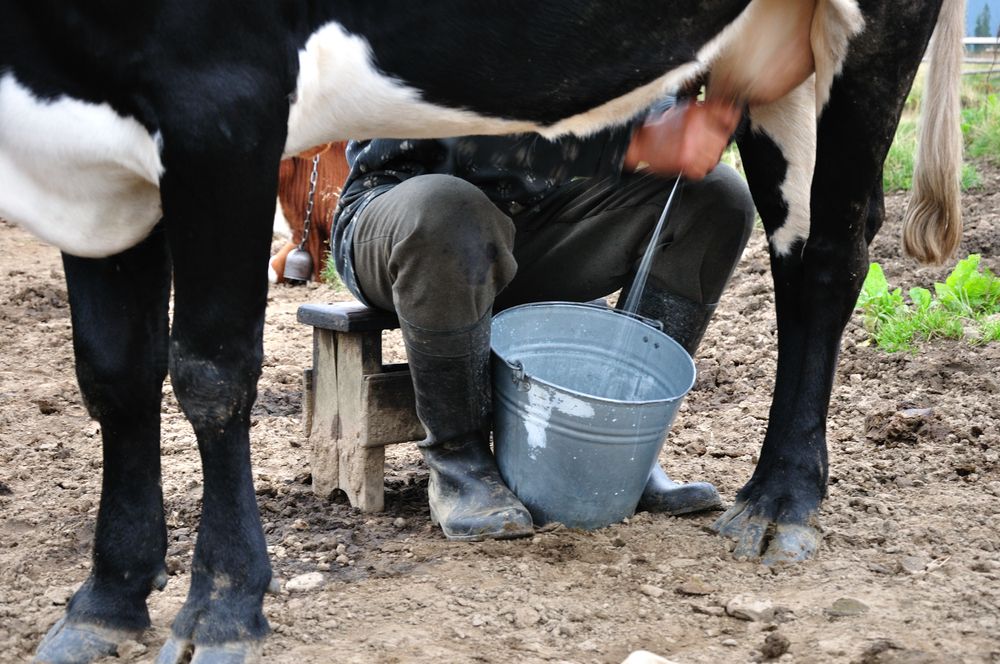
Speciesism Is Bad News for Animals (Op-Ed)

Marc Bekoff, emeritus professor at the University of Colorado, Boulder, is one of the world's pioneering cognitive ethologists, a Guggenheim Fellow, and co-founder with Jane Goodall of Ethologists for the Ethical Treatment of Animals. This essay is adapted from one that appeared in Bekoff's column Animal Emotions in Psychology Today. He contributed this article to LiveScience's Expert Voices: Op-Ed & Insights.
I continue to feel that this is "the century of the nonhuman animals" (animals).
Daily, I receive data and stories about their fascinating behavior and about our complex, frustrating, paradoxical and challenging relationships with them (anthrozoology). Indeed, just as I was writing this essay someone sent me a notice titled "Animals listed as a top priority on the UN's global survey."
Why speciesism makes no sense: A new documentary tells it all
So it was with great pleasure that I learned about the release of an outstanding documentary by Mark Devries called "Speciesism: The Movie." I've watched it a number of times, and each time I discover something new. It is that rich in content, with interviews with numerous people who are working tirelessly on behalf of other animals.
Basically, speciesism is a view that assumes human superiority over other species and "involves the assignment of different values, rights, or special consideration to individuals solely on the basis of their species membership." (See also "Animal Minds and the Foible of Human Exceptionalism.")
"Speciesism" has received well-deserved glowing reviews and I highly recommend it to anyone who wants to learn more about how speciesism influences how people view and interact with animals and just how rampant it is.
Sign up for the Live Science daily newsletter now
Get the world’s most fascinating discoveries delivered straight to your inbox.
Here's a teaser from the film's website that should whet your appetite for more. "Modern farms are struggling to keep a secret. Most of the animals used for food in the United States are raised in giant, bizarre factories, hidden deep in remote areas of the countryside. "Speciesism: The Movie" director Mark Devries set out to investigate. The documentary takes viewers on a sometimes funny, sometimes frightening adventure, crawling through the bushes that hide these factories, flying in airplanes above their toxic 'manure lagoons,' and coming face-to-face with their owners."
Who people eat
It is important to stress that while there is a concentration in the film on who (not what) people choose to eat, there is considerably much more in the general and specific discussions that center on meal plans. For example, there are discussions about animal cognition, emotions and moral behavior, and also animals' status, or lack thereof, in legal systems. I also like how numerous questions about people's relationships with other animals are raised and the audience sees not only how confused many people are — inconsistencies and paradoxes abound — but also how viewers are left to draw their own answers and conclusions about humanity's obligations to other animals and their interests in living in peace and safety.
This documentary also makes it very clear that numerous people don't know what happens on factory farms — and are incredulous when they learn about the atrocities that routinely happen in these hell-holes. And, it's also clear that people across political and economic spectrums care about animal welfare and the environmental devastation for which factory farms are responsible. What is clear to me, and many others, is that factory farms are not really farms, but rather businesses where millions upon millions of animals are brutally abused and slaughtered, and that calling them "farms" is an insult to people who truly operate real farms.
"Speciesism" can change one's life. Indeed, one of my friends, who is not one of the animal-welfare "converted," told me that "Speciesism" changed his life. He sort of knew about the rampant abuse that occurred in industrial food operations but had never deeply analyzed his views and how his behavior — buying and eating animal parts and products from these heartless businesses — went against his values that included showing respect for other animals. Would he put his dog on a factory farm? "Hell no," he said, and then realized that the millions of cows, pigs and sheep who find themselves living in these places were no less sentient and didn't suffer less than would his dog.
From the film's website, other viewers of "Speciesism" had the following comments:

"About the movie, I've been thinking about it a lot actually and was raving about it to my wife. … I've come to the conclusion at this point that my thoughts about humans vis-a-vis animals are basically irrational, which is hard for me to swallow!" David, Washington, D.C.
"I appreciate this film for the conversation which very few (if any) filmmakers have broached: what sets apart humans from animals ... really. Not the usual 'here's why we're better, or worse' but let's really ask 'what distinguishes us?' And to stay with the question, logically, to see what's there. That's documentary film at its best." Jenny, Sacramento, Calif.
"I just had to share this with you... My 79-year-old mom is visiting me from out of town. I have talked to her several times about [speciesisism] and she's always kind of brushed me off and gave me the impression she thought I was being extreme. So when I realized that she was going to be here while your movie was playing in L.A., I told her I was going to take her to see it. At first she was very resistant, but then she agreed to go. Well when it was over she told me she loved the movie and said it was very well done. She talked about it all the way back home. She thanked me for taking her to see it. You definitely made her stop and think and question her beliefs and behavior. And for a woman who will be 80 in 2 months, that is huge! Thank you again for making this thought provoking, intellectually stimulating movie!" Kirsten, Los Angeles
My humble suggestion is watch this documentary, watch it again, and share it widely. It is that important. It's difficult to do justice to all of the gems that are in this film, including interviews with a broad cohort of people many of whom hadn't spent much time analyzing who they ate and those who are affected by the presence of factory farms near their homes.
Bekoff's most recent Op-Ed was "Do Animals Typically Think Like Autistic Savants?" This article was adapted from "Speciesism, Bad Zoos, Fish Personality, and Clever Reptiles" in Psychology Today. The views expressed are those of the author and do not necessarily reflect the views of the publisher. This version of the article was originally published on LiveScience.











